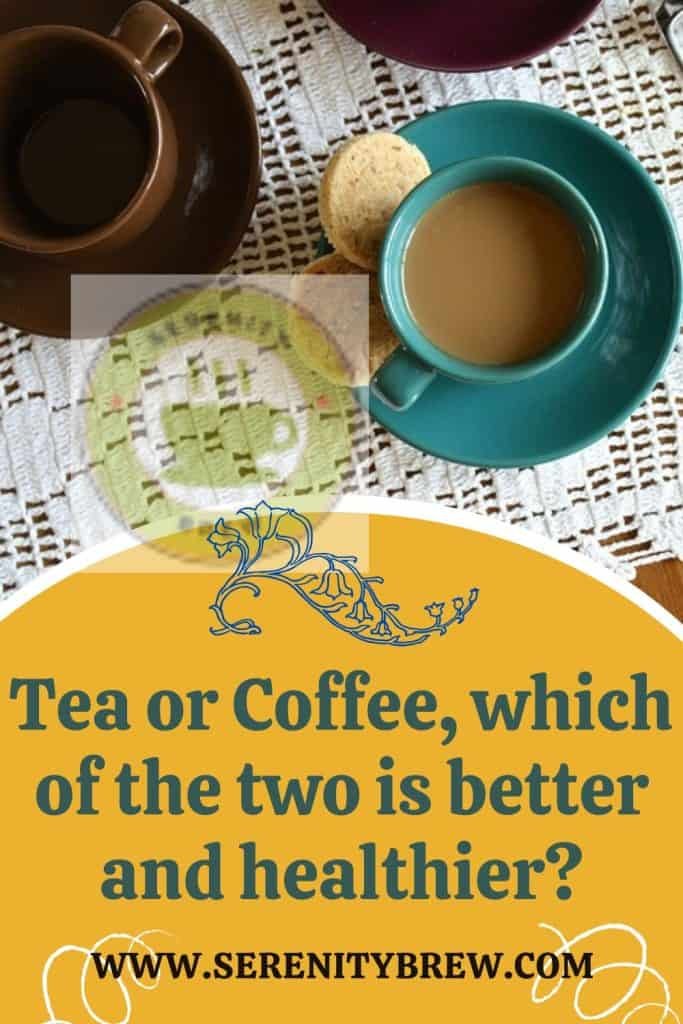
There are more and more consumers of coffee who try to completely or at least partially change their addiction to coffee and drink more tea. And it is that it is usually thought that tea is healthier than coffee but, if we are given to decide between Te or Coffee Which of the two is better and healthier? Let’s see.
Tea or Coffee: Which of the two is healthier?
There is much debate around the fact that the consumption of coffee could increase the risk of a heart attack or other serious diseases, such as cancer, although studies contradict these theories. However, it is well known that excessive caffeine consumption can have unpleasant side effects, such as jitters and high blood pressure.
The drinkers of coffee, often resort to the stimulating effect of coffee, especially to wake up in the morning, because tea consumption is more associated with comfort and relaxation. However, it is a mistake to think that drinks from coffee beans or the kola nut, only contain caffeine. The White tea, black tea and green tea contain ” theine “, this is the same stimulating agent as caffeine.
Te O Cafe, which is healthier?
Speaking clearly, most of us have asked ourselves this question without being able to answer it correctly. Tea or coffee that has more caffeine?
The caffeine content in tea is lower, linked to tannins and depending on the time the tea rests in hot water. The effect can vary in stimulating or calming. Caffeine also acts slower, but in general it lasts longer. There is about 100 milligrams of caffeine in a cup of coffee, twice that of the same amount of black tea, green tea, or white tea.
An advantage for the tea drinker is the effect of the tea on the teeth: Dissolved leaves of tea, fluoride strengthens tooth enamel and limits acid production by oral bacteria. This side effect may thus help prevent dental caries . Conversely, coffee lovers who drink many cups daily may see their teeth become discolored.
Basically it is very healthy to drink beverages such as tea and/or coffee in moderation: The black tea and Green Tea, for example, contain substances that are said to have a preventive effect against cancer, however, if you are fond of milk tea , it can neutralize this effect completely.
Coffee may help with scientific evidence that it leads to the prevention of gout, while drinking tea with theine protects against rheumatism. It also seems to be shown that caffeine is good for reducing the risk of Alzheimer’s disease or dementia, blocking one of the negative traits of cholesterol. Cholesterol weakens the body’s blood-brain barrier in the long term, and the effect of caffeine stabilizes that barrier. Through various acids in coffee, the gastric mucosa can be attacked.
Very dark coffee roasts are lower in acid than lighter roasts, therefore dark roasts are more suitable for sensitive stomachs and in the case of espresso, it is beneficial because the roasting process of the coffee beans is very extensive and long.
Nor can we forget that the black tea and coffee protect against heart disease.
Coffee and the diuretic effect

The diuretic effect of coffee is well known, but the effect in occasional consumers is greater than in regular drinkers. It is also not true that the body’s water balance is permanently altered by high coffee consumption.
Often in some countries teas or coffees are served simultaneously for breakfast with a glass of water. This initially has a different purpose than “regulating” fluid intake, because the water is drunk first, the taste buds on the tongue are “washed” and so it is more sensitive to the aroma of coffee, so the flavor is more intense. In short, it is simply a mistake to believe that tea would be healthier than coffee, since in moderation both drinks can be an asset for the day to day, depending on tastes. As a stimulant, helping concentration, calming, relaxing or to warm up during cold seasons.
